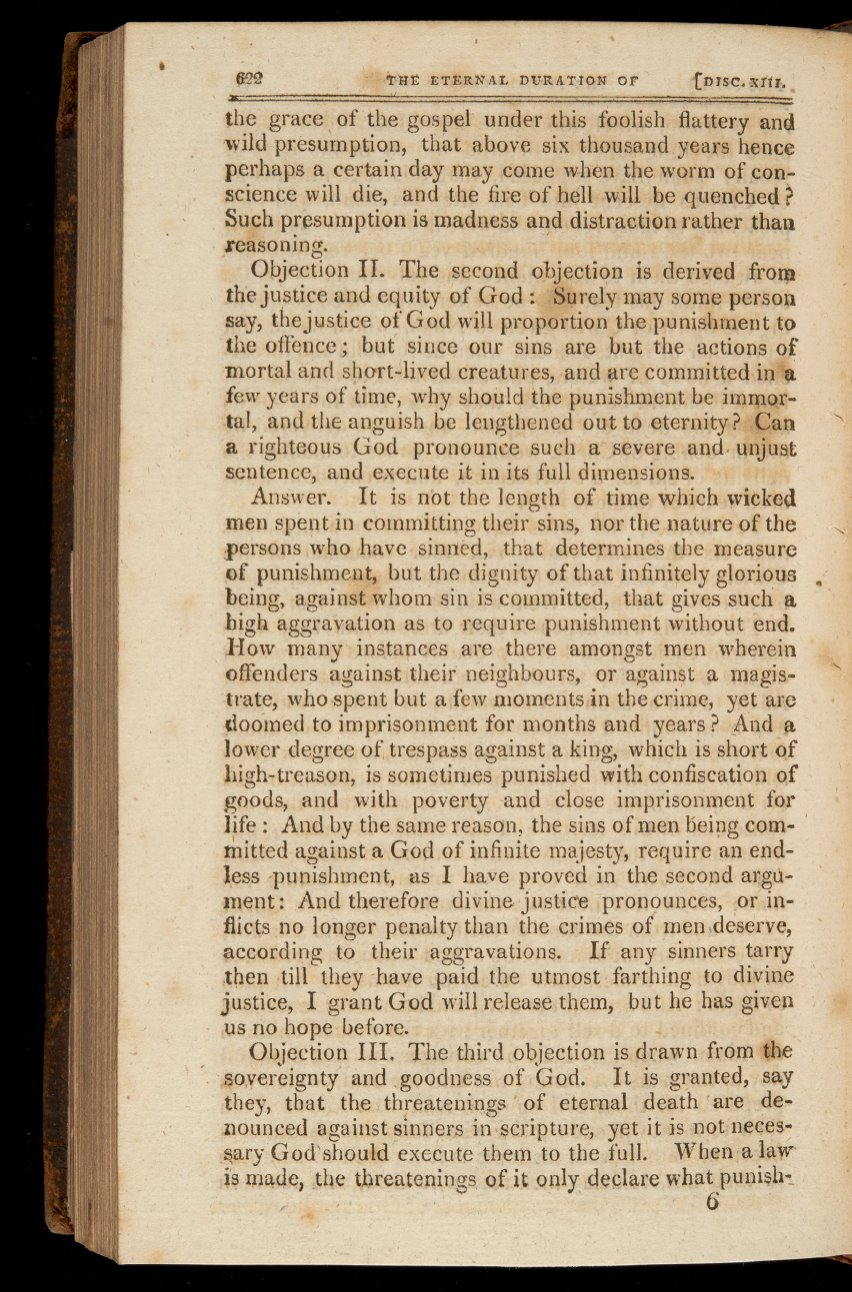

62
THE ETERNAL DURATION OF
[DISC.:Mr.
r
the grace of the
gospel
under
this foolish flattery and
wild
presumption,
that
above
six
thousand years
hence
perhaps
a certain
day may come when the
worm
of
con-
science
will
die,
and
the
fire
of
hell
will be
quenched
?
Such
presumption
is
madness and
distraction
rather
than
seasoning.
Objection
II.
The
second
objection
is
derived from
the
justice
and equity of God
:
Surely
may some
person
say,
the
justice of God
will
proportion
the punishment
to
the
of once
;
but
since our
sins
are
but
the actions
of
mortal
and
short
-lived
creatures, and are committed
in
a
few
years
of
time,
why
should the
punishment
be
immor-
tal,
and the
anguish
be
lengthened
out
to
eternity?
Can
a
righteous
God
pronounce
such
a severe
and-
unjust
sentence, and execute
it
in its full
dimensions.
Answer.
It
is
not
the length
of
time
which
wicked
men
spent
in
committing
their
sins,
nor
the
nature
of the
persons
who
have sinned,
that
determines the measure
of
punishment,
but
the dignity
of that
infinitely glorious
being,
against
whom
sin
is
committed,
that
gives
such
a
high
aggravation
as to
require
punishment without
end.
How many instances are there amongst
men wherein
offenders
against their
neighbours, or against
a magis-
trate,
who
spent but a
few
moments
in the crime,
yet are
doomed
to
imprisonment
for months and years
?
And
a
lower degree
of
trespass against
a king, which
is
short
of
high-
treason,
is
sometimes punished
with confiscation
of
goods,
and
with
poverty
and
close
imprisonment
for
life
:
And
by
the same reason, the
sins
of
men being com-
mitted against a God
of
infinite majesty,
require
an end-
less punishment,
as
I
have proved
in
the second argu-
ment:
And therefore divine
justice
pronounces, or
in-
flicts
no
longer penalty than
the crimes
of
men deserve,
according
to
their aggravations.
If
any
sinners
tarry
then
till
they have paid the utmost farthing
to
divine
justice,
I
grant God
will
release them,
but
he has given
us
no hope before.
Objection
III.
The third
objection
is
drawn
from the
sovereignty
and .goodness
of
God.
It
is
granted,
say
they,
that
the
threatenings
of
eternal death are
de-
nounced against sinners
in
scripture, yet
it
is
not
neces-
sary
God'should
execute them
to
the
full.
When
a law
is
made, the
threatenings
of
it
only
declare what punish-
G

















